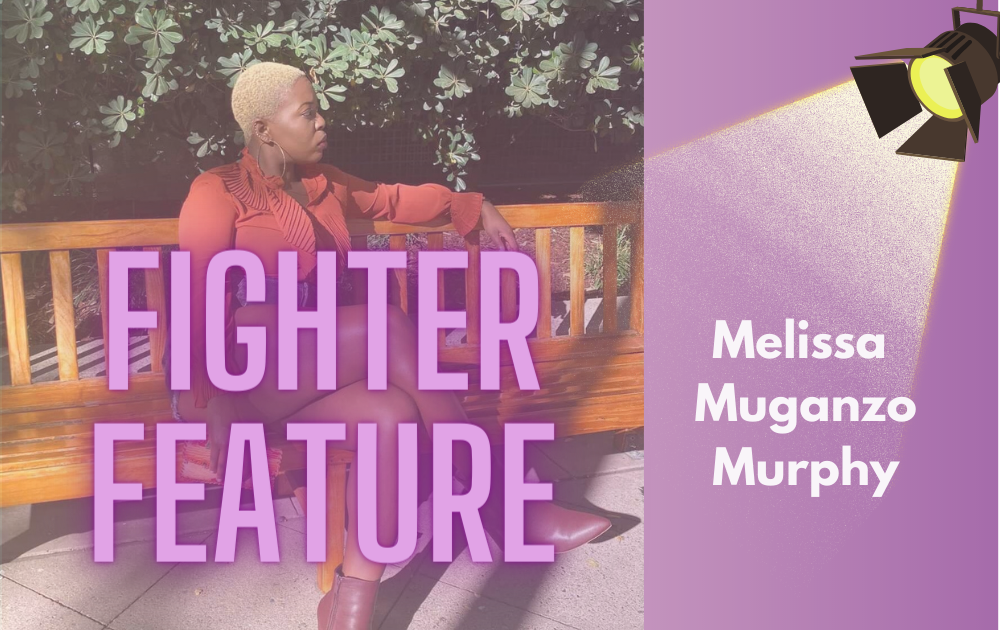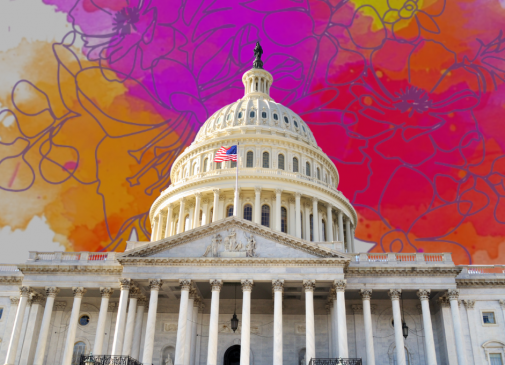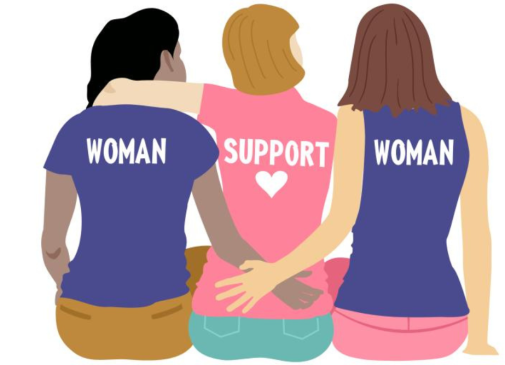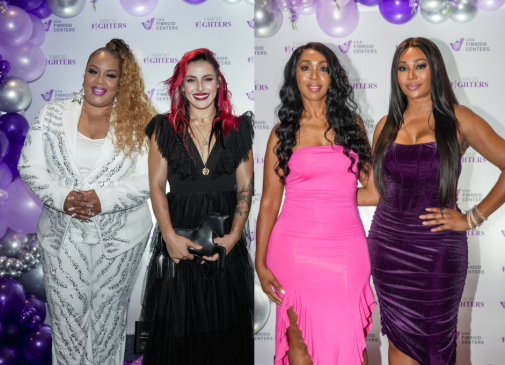
We’re introducing our newest series: the Fighter Feature. Every month, we’ll be asking one of our Fibroid Fighters to encourage more conversations about fibroids by sharing their story and to discuss how they’re continuing to support the fight against fibroids.
This month, we’re featuring Fibroid Fighter Melissa Muganzo Murphy (she/they/sis).
As a black, queer, womxn (woman), Melissa brings a new perspective to our fight against the fibroid epidemic.
Hello, my fellow #fibroidfighters! My name is Melissa Muganzo Murphy, and my pronouns are she/they/sis. I am an entertainer, philanthropist, entrepreneur, and proud #fibroidfighter.
What are you thankful for?
I am incredibly thankful for health, family, and true long-standing friendship – all things that, if I’m not careful or get caught up in my busy schedule, I will forget about how important they are to me.
What’s your first memory of suffering from fibroids? How old were you? What was it like?
My first memory of suffering from fibroids that really confirmed for me that I was experiencing uterine challenges came at age 16. My period was nine days long, with the first two days being out-of-this-world heavy with extreme cramping and diarrhea. The cramps woke me out of sleep, and I had uncontrollable cystic acne under my chin and on my cheeks. I bled through my clothes, tampons, and pads, and trying to laugh, cough, or sneeze would equal me creating a bloody mess. All my family knew was that bad periods ran in my family, but there was no cure. It was horrible and depressing. And as a cheerleader, choreographer, and up-and-coming entertainer at the time, performing with periods that heavy was anxiety-inducing, to say the least.
How did your life change when you were diagnosed with fibroids? What did you begin to notice?
Finally, finding out that I had an illness with a name made me feel seen and gave me the language to talk about it with other people experiencing the same things. Once I started to mention it in both casual and professional spaces, other Black folks from a range of genders and experiences would come to me and share that they were suffering or had been actively seeking answers to their uterine challenges too. As a married Queer-Black woman, sharing my experiences and story is even more important because Black and Brown LGBTQ+ people that experience uterine health challenges get left under the radar due to the idea of only cisgender women needing uterine health assistance. I have met so many queer, trans, and gender non-conforming folks who have cried and said “thank you” to me for helping make their experience real and valued. Regardless of gender identity, womb health and healing are necessary for anyone experiencing fibroid pain or harm.
What do you wish you knew about fibroid treatments before becoming an ambassador? What treatment did you undergo, and what would you get if you could choose a treatment NOW?
I was officially diagnosed at age 23 with fibroids and then medically diagnosed at the age of 27. Before both of the diagnoses, I begged my primary care physician (PCP) for a hysterectomy because I knew as a Queer Black woman I didn’t want to have children via c-section or vaginally.
Why is it important to talk about women’s health issues, including fibroids?
Women’s health is a conversation and subject matter that impacts every single person. Whether you have a uterus personally and want to have children, know someone with a uterus that wants to have children, or plan to marry someone with a uterus to share a child – the advocacy in ensuring that wombs and uterine health are both accessible, affordable, and equitable has the power to help you or someone you know. This includes children who will one day depend on a uterus/womb to create their own version of a family or a person attracted to someone with a womb. We all are products of a womb that sacrificed to bring life into this world. Their access to uterine health was primary in ensuring that we arrived safely.
This conversation is crucial for those uterus holders suffering in private due to depression, religious practices, or cultural expectations that are told to keep womb health issues a secret. No one deserves to suffer for the sake of someone else. Being open, vulnerable, and honest about fibroids helps to #unmute fibroids and bring eradication of fibroids to the forefront of cure-based research and research funding.
As an Ambassador, what are you doing to advocate for fibroids?
I am currently producing a documentary entitled “The Big Hysto” that centers on the history of uterine health in America and globally. Giving fibroid survivors a space and a voice to share their stories is both liberating and a form of activism, and I’m proud to help others find and seek truth and healing along their journey. You can find more information about the documentary, its cast, and the 2022 premiere via my website, www.muganzoentertainment.com or Instagram @muganzoentertainment.
Read Melissa’s full fibroid story here!







